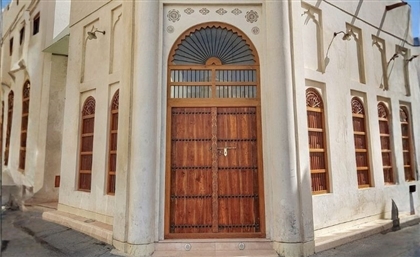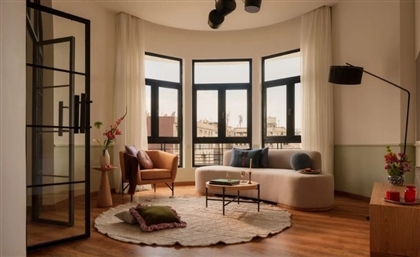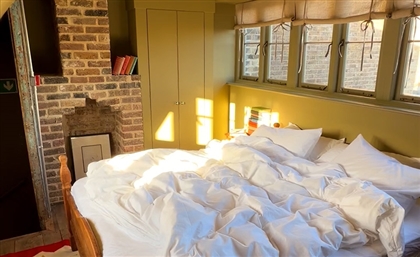The Tragic Tale of Syria’s Baron Hotel
With the ghosts of its past now roaming the halls, Baron Hotel still stands as a reminder of Syria’s timeless opulence.
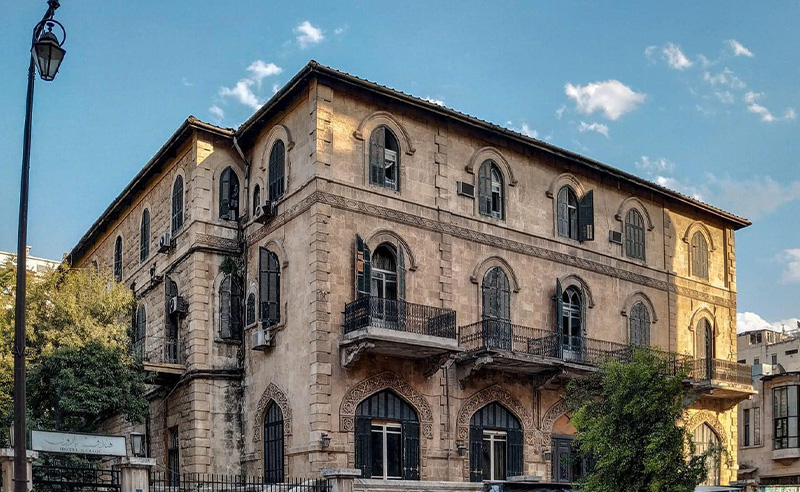
It was five o’clock on a winter’s morning in Baron Hotel. The usual, pre-dawn silence befell the halls of Aleppo’s oldest surviving hotel. Housekeepers were arranging fresh linens and plumped pillows, as the seasoned concierge brewed strong coffee for his colleagues. The kitchen ovens churned out golden-brown, fragrant rolls for soon-to-awaken guests who would shortly wander to the breakfast halls.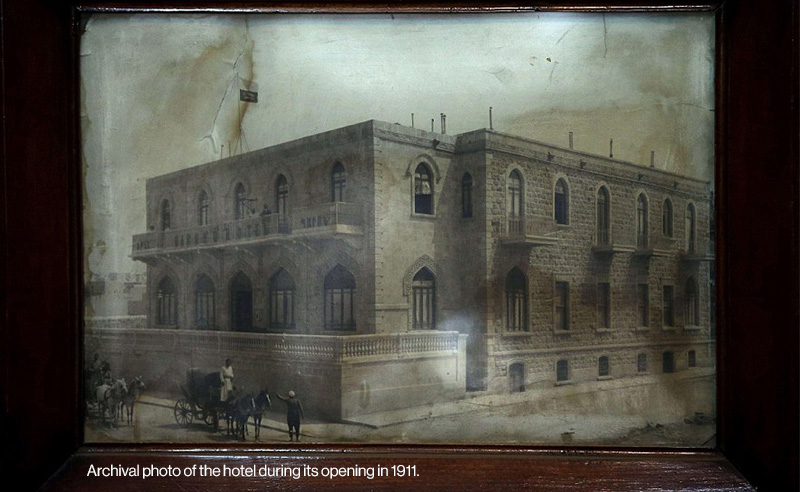 In the otherwise hushed corridors, a singular hallway hummed with activity. On the second floor, outside the threshold of room 203, the unmistakable rhythm of rapid keystrokes resonated - the sound of meticulous fingers dancing across the typewriter keys. There, perched at an ivory desk, sat Agatha Christie, deeply engrossed in crafting the narrative that, a mere year later, would be published as one of her most celebrated literary masterpieces: ‘Murder on the Orient Express’. The queen of mystery was far from the only big name to walk the halls of Baron Hotel.
In the otherwise hushed corridors, a singular hallway hummed with activity. On the second floor, outside the threshold of room 203, the unmistakable rhythm of rapid keystrokes resonated - the sound of meticulous fingers dancing across the typewriter keys. There, perched at an ivory desk, sat Agatha Christie, deeply engrossed in crafting the narrative that, a mere year later, would be published as one of her most celebrated literary masterpieces: ‘Murder on the Orient Express’. The queen of mystery was far from the only big name to walk the halls of Baron Hotel.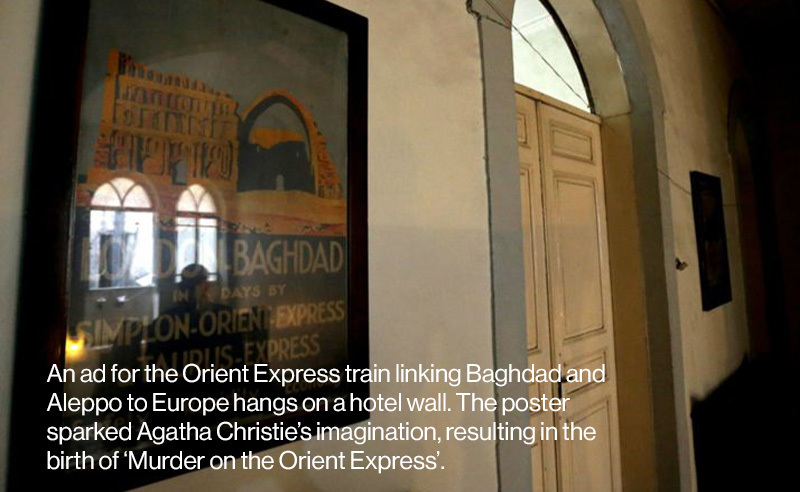 In 1958, Egyptian president Nasser, with dreams of a unified Egyptian-Syrian state, delivered a historic speech from one of the balconies. French president Charles de Gaulle also stayed there, as well as Yuri Gagarin, the first human to venture into outer space.
In 1958, Egyptian president Nasser, with dreams of a unified Egyptian-Syrian state, delivered a historic speech from one of the balconies. French president Charles de Gaulle also stayed there, as well as Yuri Gagarin, the first human to venture into outer space.
The list of visitors runs long, and so does the history of the Baron.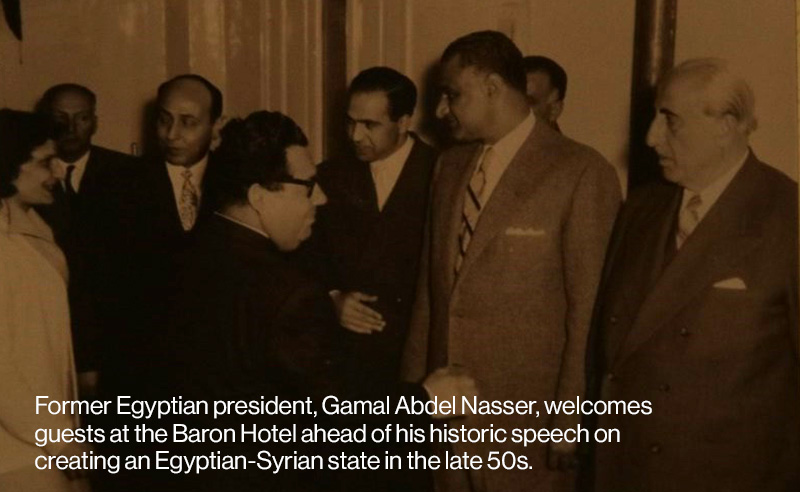 In 1911, it opened its doors on Gouraud street, later renamed as Baron street, in downtown Aleppo. The building itself is something of a wonder. Sunlight sculpts the façade, revealing a fine tapestry of architectural threads. Neoclassical arches soar skyward, while Ottoman embellishments paint intricate stories on the warm stone. Every detail, from the arched windows to the subtle particulars of the moldings, exudes a certain sense of historic allure.
In 1911, it opened its doors on Gouraud street, later renamed as Baron street, in downtown Aleppo. The building itself is something of a wonder. Sunlight sculpts the façade, revealing a fine tapestry of architectural threads. Neoclassical arches soar skyward, while Ottoman embellishments paint intricate stories on the warm stone. Every detail, from the arched windows to the subtle particulars of the moldings, exudes a certain sense of historic allure.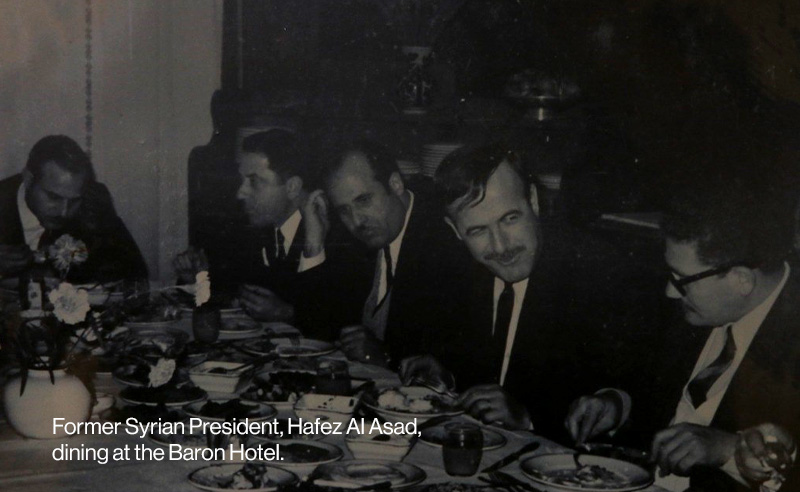
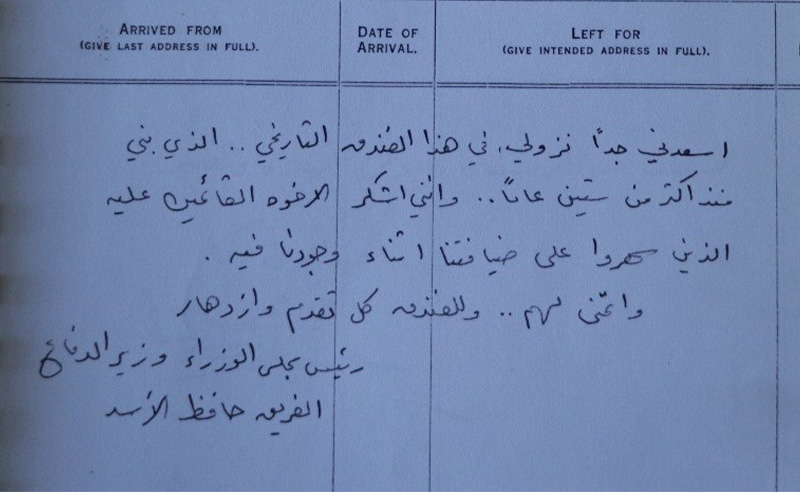 The interior spaces are no different. From the checkered lobby to the guest rooms and dining areas, there is the reflection of traditional Middle Eastern motifs fused with European-style furnishings and decor. The common areas showcase ornate chandeliers, detailed woodwork, and rich textiles, creating an exuberant, palatial atmosphere.
The interior spaces are no different. From the checkered lobby to the guest rooms and dining areas, there is the reflection of traditional Middle Eastern motifs fused with European-style furnishings and decor. The common areas showcase ornate chandeliers, detailed woodwork, and rich textiles, creating an exuberant, palatial atmosphere.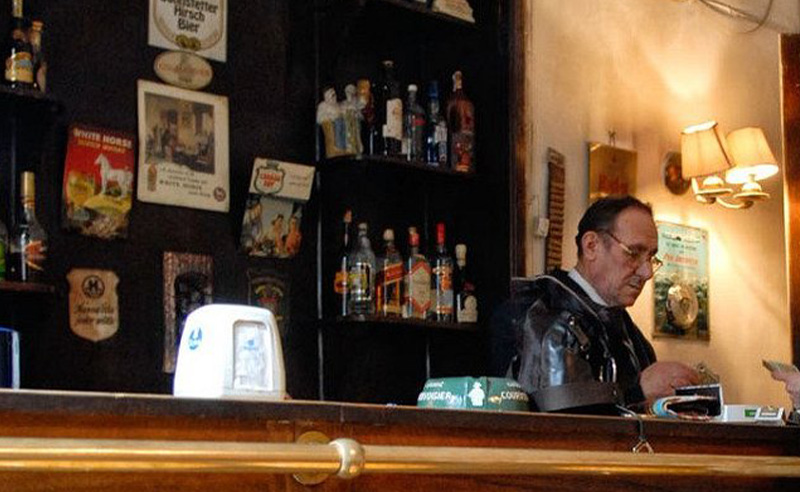 But in recent years, a different kind of silence has befallen the halls, and the passionate clicking of a lone typewriter can only be heard in the echoes of history. With the exception of Rubina Mazloumian, the hotel heiress and singular manager, no one, not since the onset of the civil war, has stayed at the hotel.
But in recent years, a different kind of silence has befallen the halls, and the passionate clicking of a lone typewriter can only be heard in the echoes of history. With the exception of Rubina Mazloumian, the hotel heiress and singular manager, no one, not since the onset of the civil war, has stayed at the hotel.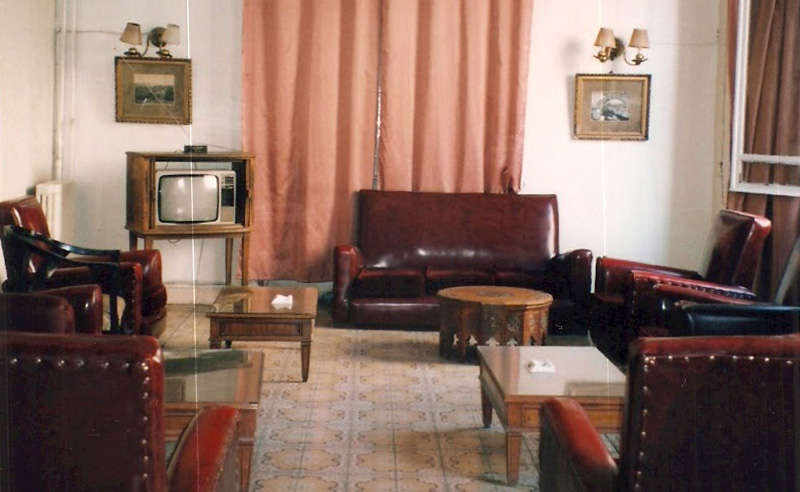 In its abandonment, upkeep has proven to be impossible. The marble stairway is without its long, red carpet– the one that was once rolled out to welcome distinguished visitors. Only its anchors remain fixed to the risers, slowly collecting rust. Transom windows have been taken out, leaving gaps above doors. Antiquated heaters cling to the walls, their functionality long gone, while the wall coatings now hang in tatters.
In its abandonment, upkeep has proven to be impossible. The marble stairway is without its long, red carpet– the one that was once rolled out to welcome distinguished visitors. Only its anchors remain fixed to the risers, slowly collecting rust. Transom windows have been taken out, leaving gaps above doors. Antiquated heaters cling to the walls, their functionality long gone, while the wall coatings now hang in tatters.
In the Telex room, a weathered switchboard still stands, where plugs were detached and replugged into many numbered jacks, connecting incoming calls to the desired room. In every room, there are rotary phones, their presence echoing a bygone era.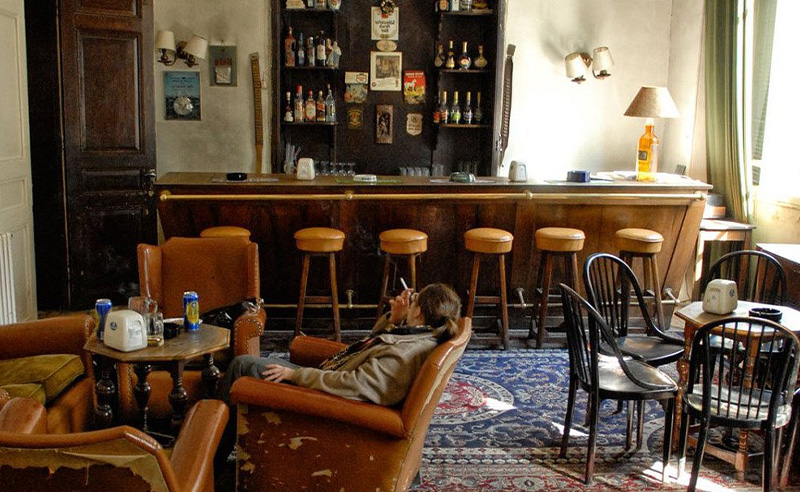 Time and war have carved their unforgiving mark upon Baron Hotel, yet one room stands resilient – the bar. Cement tiles, once polished to a glassy shine, now bear the etchings of years, each crack a weathered chronicle. Massive windows, once brimming with light, gaze out upon a world that has moved on. But within, a defiant spirit lingers. Behind the bar, an ivory alcove guards its treasures – dozens of bottles, amber, emerald, and topaz, their labels just beginning to fade. In a sun-dappled corner, brown leather chairs huddle around a table, their worn contours hinting at countless elbows propped, stories swapped, laughter echoing. On a bar cart, a defiant battalion of bottles stands ready – remnants of an era when liquid magic still flowed. It is said that Lawrence of Arabia once sat in that bar, eyes like desert storms, swirling a ruby glass of red, his voice weaving tales to fellow patrons.
Time and war have carved their unforgiving mark upon Baron Hotel, yet one room stands resilient – the bar. Cement tiles, once polished to a glassy shine, now bear the etchings of years, each crack a weathered chronicle. Massive windows, once brimming with light, gaze out upon a world that has moved on. But within, a defiant spirit lingers. Behind the bar, an ivory alcove guards its treasures – dozens of bottles, amber, emerald, and topaz, their labels just beginning to fade. In a sun-dappled corner, brown leather chairs huddle around a table, their worn contours hinting at countless elbows propped, stories swapped, laughter echoing. On a bar cart, a defiant battalion of bottles stands ready – remnants of an era when liquid magic still flowed. It is said that Lawrence of Arabia once sat in that bar, eyes like desert storms, swirling a ruby glass of red, his voice weaving tales to fellow patrons.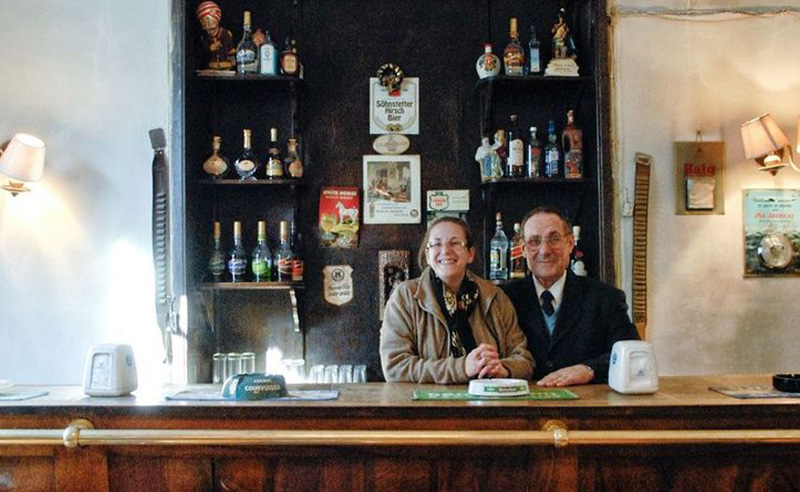 Despite the encroaching dust, Baron Hotel remains a monument to a bygone era, its grandeur refusing to be completely extinguished. Even in its present state, it evokes a sense of intrigue, telling forgotten stories through chipped paint and cobwebbed corners. Perhaps one day, Agatha's typewriter, unearthed by a curious soul, will once again echo through the halls, a new chapter unfurling in the grand narrative of this timeless Aleppo monument.
Despite the encroaching dust, Baron Hotel remains a monument to a bygone era, its grandeur refusing to be completely extinguished. Even in its present state, it evokes a sense of intrigue, telling forgotten stories through chipped paint and cobwebbed corners. Perhaps one day, Agatha's typewriter, unearthed by a curious soul, will once again echo through the halls, a new chapter unfurling in the grand narrative of this timeless Aleppo monument.
- Previous Article Etihad Airways Introduces New Flights to India
- Next Article Farm to Tourism-Staple: The Earthiest Farm Stays in the Middle East




